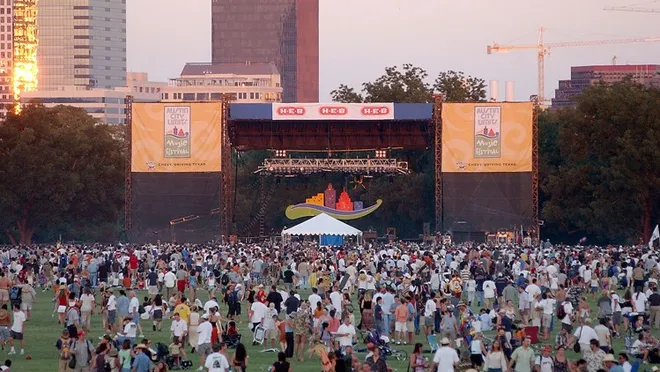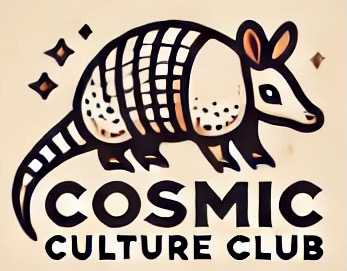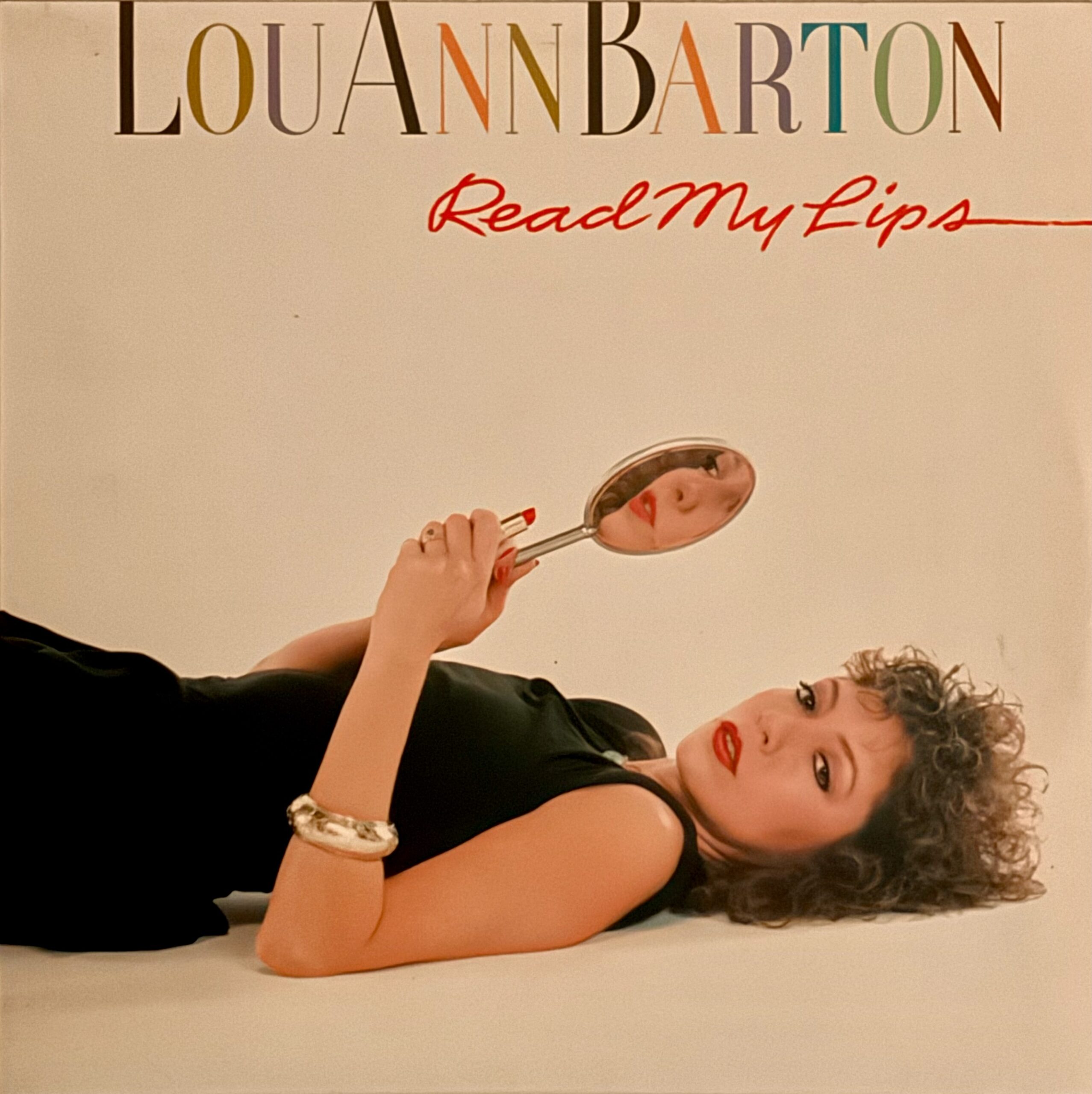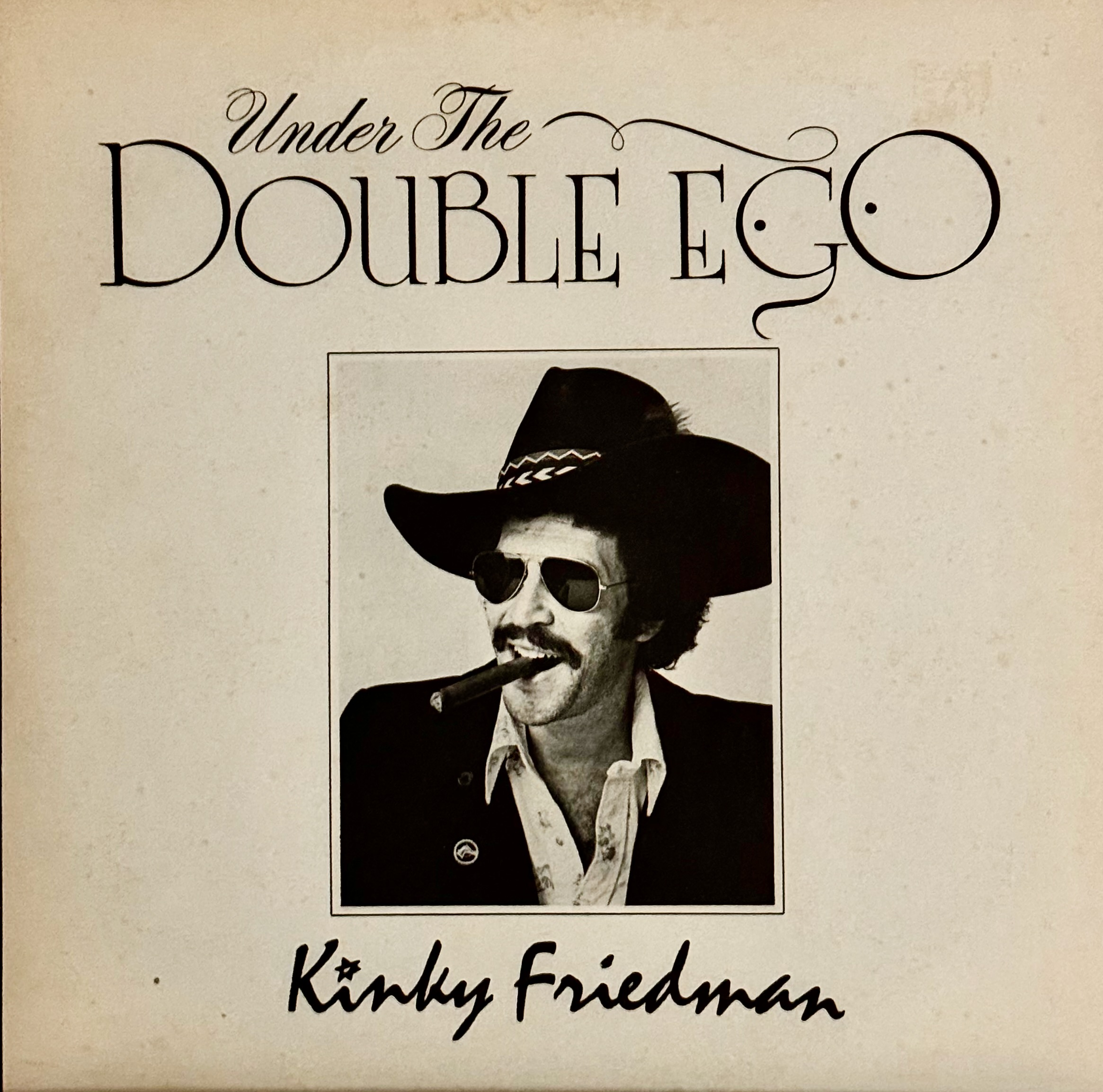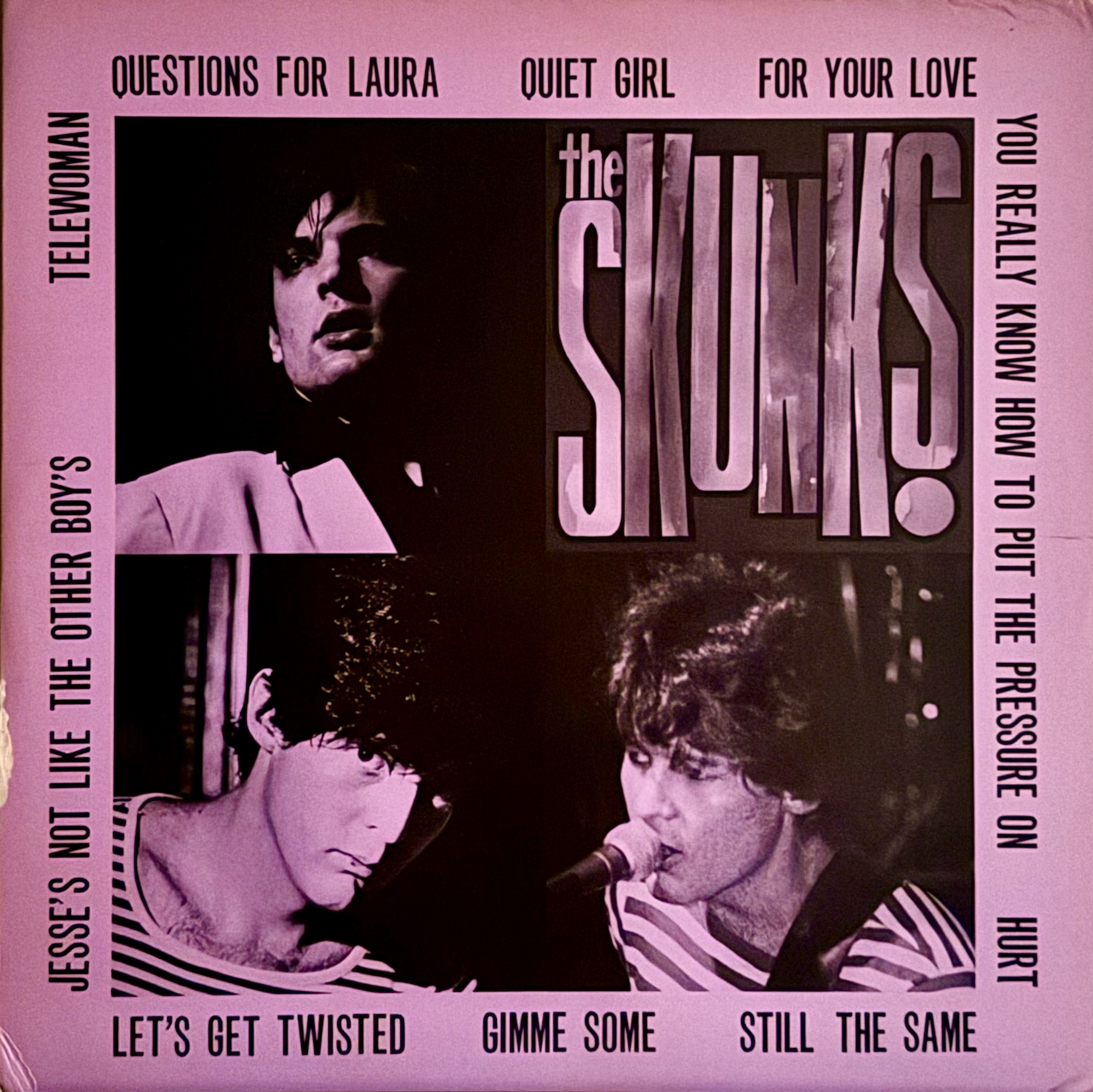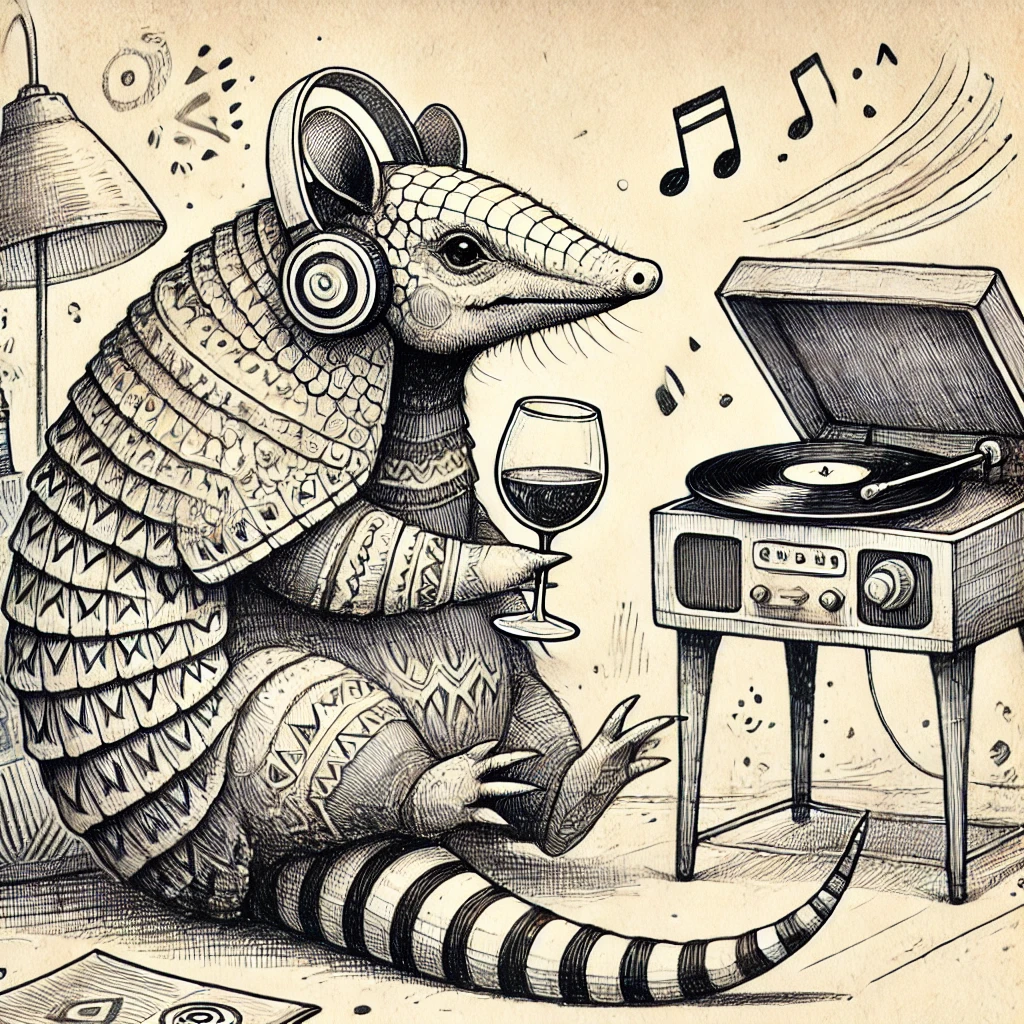This is the second installment of a two part series. To start with part one click here.
I’d been calling the cab company all morning but only getting busy signals, so I was surprised when Brad pulled up in a Yellow Cab.
“I flagged this guy down on Lamar,” he explained. “Dropped somebody off right in front of me.”
“Busier than a football game,” the driver muttered as he weaved through the slow-moving traffic. We had time to make the Asleep at the Wheel set if we avoided additional mishaps. I wasn’t expecting zealous security, but I had a few joints hidden in my clothing and thought it would be prudent to smoke one of them before going in. Brad and I were trying to decide on a spot.
“Hey,” the driver said, glancing in the rearview mirror, “it’s not a big car; I know you want to smoke a joint.” I was wary of cab drivers since an incident a couple of weeks ago where one had mistaken my chivalry for something nefarious and reported me to the police for solicitation. “You can smoke it in here—but you’ll have to share with me.” We smoked the joint under a tree in the YMCA parking lot. He kept the meter running.
When we got to the festival, the line to get in stretched for hundreds of yards. We joined the throng, making a slow shuffle toward the distant gates while the Texas sun beat down on us. I checked the paper schedule, folded in the pocket of my cargo shorts. Asleep at the Wheel was taking the stage right now, and we were at least a half-mile from the entrance.
There was a news crew set up on the side of the road, filming festival-goers. I waved at the correspondent; he was a regular from the lunch crowd. I’d run into him on assignment before, and he occasionally quoted me on the local news. He picked his way through the throng.
“These lines are only going to get worse,” he told me. “We have another reporter at the shuttle station, and it’s a madhouse. Last week, they were expecting maybe twenty thousand attendees, but there was a late surge, and now it’ll be at least double that.”
When we finally cleared the gates, we joined a jubilant crowd marching to an indistinguishable cacophony of music suspended in the thick air. Towering stages had sprouted at both ends of the park, and masses of barely clothed festival-goers were weaving their way through the expanse between them. Many were carrying flags and banners as they led small tribes across the grassy expanse.
“To the beer!” Brad shouted while pulling his shirt off and tucking it into his waistband. He dove into the crowd and made his way toward a tent that had a neon yellow sign declaring BEER in bold letters above it. The tent was still in the distance when we ran into the only group of people not moving. They claimed to be the beer line.
“Keep going,” I told Brad. “We want to approach from the other side.”
“What?”
“It’s some psychiatric thing,” I tried to explain. “Most people are right-handed, so they’re drawn to the right side. If there’s an option, fewer people go left. So, if we approach from the left side, we’ll get shorter lines.”
The line wasn’t much shorter on the other side, but I forced Brad to concede my theory might be correct. We studied the map while we waited, trying to identify who was playing the various stages.
“I think that’s Pat Green,” Brad said, pointing to the stage on the far end of the park.
“That will be eight dollars,” the bartender said, pulling two Lonestar tallboys from a tub of ice on the folding table behind them.
I winced as I handed over a ten-dollar bill. Double-fisting was a prudent way to mitigate the nuisance of the line, but it put a dent in my meager cash supply. At this pace, I figured I’d be out of cash by the afternoon.
We plunged into a thick crowd and worked our way toward the cluster of flags bobbing in front of the nearest stage. As we pushed closer, the intensity swelled until we were engulfed in a gyrating mass of sweaty bodies, all moving in unison to the funky beats of G Love and Special Sauce.
There was a thick cloud of dust suspended in the air as the band left the stage. The excitement of the show was a reprieve from the heat, but now the sun was relentless. There was no shade to be found, but misting stations were plentiful. I lingered in the steamy mist, scanning the park for the next destination.
“Billy!” I shouted to a wiry man with long gray hair and round spectacles sliding off the end of his crooked nose. He grinned and pulled me into a hug.
Billy—known as Bamboo Billy to his friends—was the most interesting member of the Red Dog club. A Navy veteran and world traveler, he lived in a bamboo grove near the park. He was typically a gentle soul, but when he was off his meds, things could turn dark.
“It’s good to see you again!” Billy said happily. He visited the Icehouse daily during the quiet hours, drinking Red Dogs and eating nachos as he watched the news on our big-screen TV. He didn’t have a house, but he had funds from the monthly disability check the Navy gave him.
“When did you get back?” I hadn’t seen Billy in a while. He liked to buy marijuana in bulk so that he always had something to give to his friends. There was a pound of grass in his backpack when he walked up to the stage at Blues on the Green and tried to hand a joint to Marcia Ball. If you knew Billy, that situation made sense, but the off-duty cop working security didn’t know Billy, and the incident got him a six-month stay in the county jail.
“Come on,” he said, motioning toward the beer tent. “Let’s get some beer.”
“Approach it from the left,” Brad said. Billy gave him a curious look but veered to the nominally shorter lines on the left side.
Billy kept asking the bartender to bring more beers until we had stuffed my backpack with Lonestars. “That way, we won’t have to wait in that horrendous line again,” he explained as he handed her a stack of bills without counting them and waved off receiving any change.
We found a grassy spot in the sun in front of the rock formation in the middle of the park. A skinny kid in a funny hat took the stage. He unleashed his guitar and dropped blues licks like he was Albert King on an eight-ball.
“Who is that?” Billy asked.
I fished the schedule out of the recesses of my pocket. “Gary Clark Jr.,” I answered with a shrug. I found one of the hidden joints and bent it into a semblance of a proper shape before sparking it. I lay back in the grass and closed my eyes as I listened to the kid make love to his guitar. While the final notes were still lingering in the air, Billy leapt nimbly to his feet and darted into the crowd without warning.
“Shit! Wait here,” I exclaimed. I snatched a leather wallet off the ground in the grassy space Billy had just vacated and plunged into the crowd after him. He was a quick old man, and after a few minutes, I admitted defeat.
“What just happened?” Brad asked when I returned holding the wallet. I hadn’t had a chance to fill him in on Billy’s backstory. He was confused why an old hippie was buying us beers and still trying to figure out if “lives in a bamboo patch” meant what he thought it did.
Brad rummaged through the backpack as I did my best to explain. “There are still eight beers in here,” he announced happily. Then, he looked curiously at the wallet I was holding. “What’s in there?”
“Shit,” I said again as I counted eight hundred seventy-four dollars in cash. I nervously shoved the wallet deep in my cargo pocket and ensured both buttons were firmly secured. It was the most cash I’d carried at one time, and I was terrified of losing Billy’s money.
My bladder was finding its limits. “Let’s stop by the porta-potties before we do another show,” I said. A more experienced person would have realized that everyone in the beer line would eventually be in the bathroom line, but I didn’t think about that until we approached the porta-potties and could see lines extending for miles.
“Do you want to try the left side?” Brad asked as we joined one of them. “There are seventy-four people in front of us. If each of them gets in and out in thirty seconds, this will take thirty-seven minutes. But, that’s an optimistic estimate. If we assume it takes forty-five seconds,” he paused to think, “about fifty-five and a half minutes—you’ve got that, right?”
I definitely did not. I bounced from foot to foot, doing my own calculations. I couldn’t find a flaw in Brad’s math, but my bladder was telling me we needed a solution in the less-than-a-minute time range.
“There’s no way around it,” Brad said gleefully. “You just have to pee your pants. Think about it, you’re obviously not gonna make it another fifty minutes. Eventually, you will pee yourself. Do you want to stand here in misery until it happens or just do it now?” he asked.
His reasoning made sense, and I was starting to seriously weigh the pros and cons. They were mostly cons. Then I dropped the backpack and started to run. Not a light jog—a full-out sprint toward the festival gates. I could hear Brad howling with laughter as I weaved through the crowd like Roy Williams slicing the Sooner defense.
I didn’t stop until I crossed the hike-and-bike trail and was hurtling toward the shores of Town Lake. As I added my stream to the Colorado River, a crowd of men came tumbling down the embankment behind me, frantically trying to make it to the river before they wet themselves at a music festival.
“You started a stampede,” Brad said when I finally found him again, sitting under a black-and-white flag featuring a joint with the words Come And Toke It emblazoned beneath. He wiped the tears from his eyes and continued to laugh uncontrollably.
“You cut the wait time by thirty percent,” he said. “Half the guys figured out what you were up to and took off after you.” He was an accounting major at UT, and I was starting to find his ability to crunch numbers annoying.
“Did you lose everything Billy owns?” he asked. I frantically checked my pocket and was relieved to find the wallet still there.
“I hope he comes to the Icehouse in the morning,” I said. “I’m tired of the responsibility.”
The setting sun brought a welcome reprieve from the day’s heat. I was nursing my final Lonestar while carefully plodding toward the headlining stage. The heat exhaustion, dehydration, and Lonestar were taking a toll on the festival-goers, and the dark field was littered with the day’s victims.
We chose a secluded spot at the back of the crowd to watch the String Cheese Incident. The guy standing next to me held out a joint, and I accepted it gratefully and took a long drag.
“Billy!” I exclaimed as I turned to hand the joint back to the owner. “I’ve been looking for you all day.”
“What a great time,” Billy said. “I’m just so grateful to be here and have been having the best time.”
“I have your wallet!” I exclaimed.
“Oh?” he took another long drag off the joint and nodded happily in rhythm with the music. “That’s great, it’s really great. I thought it was gone. That’s the way the universe works—put things out there, and they make it back to you.” He casually took the wallet I was extending and pulled the bills out without even looking at them.
“Here, take this,” he said, holding out the fistful of cash.
“I’m not going to take your money, Billy,” I said incredulously. Letting him buy me beer was one thing, but I couldn’t take eight hundred dollars from a man who lived in a bamboo patch. There were other people who relied on him too. He spent very little of the money on himself but was constantly buying essential supplies for the community he lived in.
He shrugged. “It’s just money,” he said. “When you live like I do, you learn not to put much value in it. Will you at least take half of it?” he asked while splitting the stack of bills in half. “Ten minutes ago, I didn’t have any money, and if you hadn’t shown up, I still wouldn’t. So how can we say who this money belongs to?”
“Are you going to be here again tomorrow?” I asked.
Billy smiled broadly. “I wouldn’t miss it.”
“If we run into each other tomorrow, you can buy me a beer. We’ll let the universe decide.”
“Yeah,” Billy said, sliding the cash back in the wallet. “That sounds right. We’ll let the universe decide.”
“See you tomorrow, Billy.”
